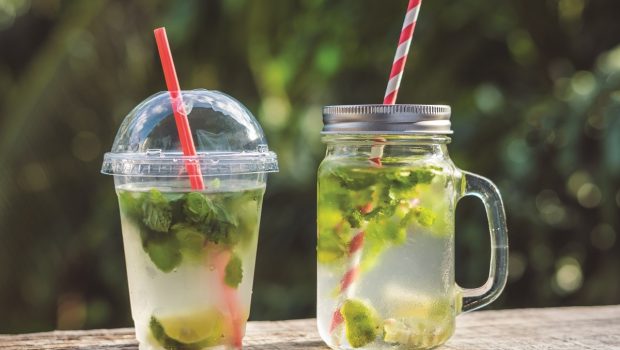ZERO WASTE LIFESTYLE
Ways to make Far Less Trash
by Avery Mack
In manufacturing, a zero waste policy means designing products so that all resources are used or reused. It’s a concept Bea Johnson, author of Zero Waste Home: The Ultimate Guide to Simplifying Your Life by Reducing Your Waste, embraced for her family a decade ago in Mill Valley, California. “My goal was to simplify our lives,” she says. “We found a zero waste lifestyle isn’t what we expected; it’s better. It’s good for the environment and for our family.”
Johnson reports achieving 40 percent savings in annual household costs. “Voluntary simplicity has also changed our daily routines. Simple living focuses on experiences versus things, and we find we have more free time,” she says. “Our minimalist wardrobes now fit into carry-on bags for travel.”
A Doable Personal Goal
“Don’t expect to reach zero. Go for zero-ish,” counsels Celia Ristow, a freelance writer who blogs at Litterless.com. In 2017, Ristow and two friends, Moira Kelley and Bailey Warren, started a grassroots group called Zero Waste Chicago to raise awareness and connect locals with needed resources to reduce trash.
“We speak at grocery stores, community events, schools, colleges and to employees on their lunch hour. We love how responding readers send suggestions and outlets for reusing items,” says Ristow.
Local efforts can take off when people find like-minded others through using hash tags like #zerowastechicago on Instagram, search for a local blogger or host a mini-meet-up in a grocery that sells in bulk or at a coffee shop that uses ceramic cups or no plastic stirrers. Similar grassroots organizations are active in Colorado (EcoCycle.org/home) and Seattle (EcoCollectiveSeattle.com).
“Zero waste seems difficult to imagine in the U.S. People think change is costly and time-consuming,” Johnson says. “My vocation is to shatter these misconceptions. Follow the 5 R’s: refuse what you don’t need, reduce what you need, reuse, recycle and rot. Refuse single-use plastics and junk mail, reduce the volume of clothing items and sports equipment, buy used, recycle the unwanted and compost (rot) food waste, lint, hair and floor sweepings. It’s not that complicated.”
Due to her experience, Johnson can now store a year’s worth of waste in a pint-sized Mason jar. “Inside is deteriorated foam from headphones, a dental retainer, silicone caulk from the sink, fruit and veggie stickers, clothing labels, plastic mini-bumpers from cabinet corners I replaced with felt and a plastic-coated spike from the dishwasher,” she says. “I’m still amazed when people have a use for something I don’t want or need. Start by saying no to flyers, freebies, party favors, business cards, plastics, excessive packaging and junk mail. Accepting them creates more. Refusing such clutter is the first rule to a less wasteful lifestyle.”
Kathryn Kellogg, the Vallejo, California, author of the Going Zero Waste blog and a content creator for Pela Case, a Canadian eco-friendly smartphone case maker, offers many zero waste swaps. “I use silicone cupcake liners instead of paper, bar soap in lieu of plastic-packaged body wash and make my own lip balm.” She also has alternatives for sponges, plastic wrap, cooking pans and toothbrushes. Consider her 31-day challenge at GoingZeroWaste.com/31-day-video-challenge. She notes, “Since I started working toward zero waste, I have more confidence, am able to speak up about less waste and am mindful when I shop.”
A World View
In May, Johnson toured 16 countries in 17 days giving presentations. “Surprisingly, we often had to open another room because interest was higher than expected. In Russia, they broadcasted my talk to 17 cities,” she says.
Johnson learned that many countries have no waste collection or recycling programs. Plastic bottles, bags and trash litter many landscapes. “Life in the United States is different. Here, we have bigger houses, need more and create more waste. Elsewhere, grocery shopping is done daily instead of weekly, produce is local, seasonal and sustainable instead of imported,” she observes. “In a way, it’s easier to go zero waste there because they’re using just what they need. Everyone deserves a place to live and life’s necessities. Past that comfort level, it’s excess.”
Johnson sees rapid changes underway in consumer thinking and is hopeful looking forward. “I don’t want to tell others how to live. I just want to share our experiences. The United States’ example has a huge impact worldwide. Zero waste is the necessary lifestyle of the future, and it begins at home.”
Connect with the freelance writer via AveryMack@mindspring.com.












